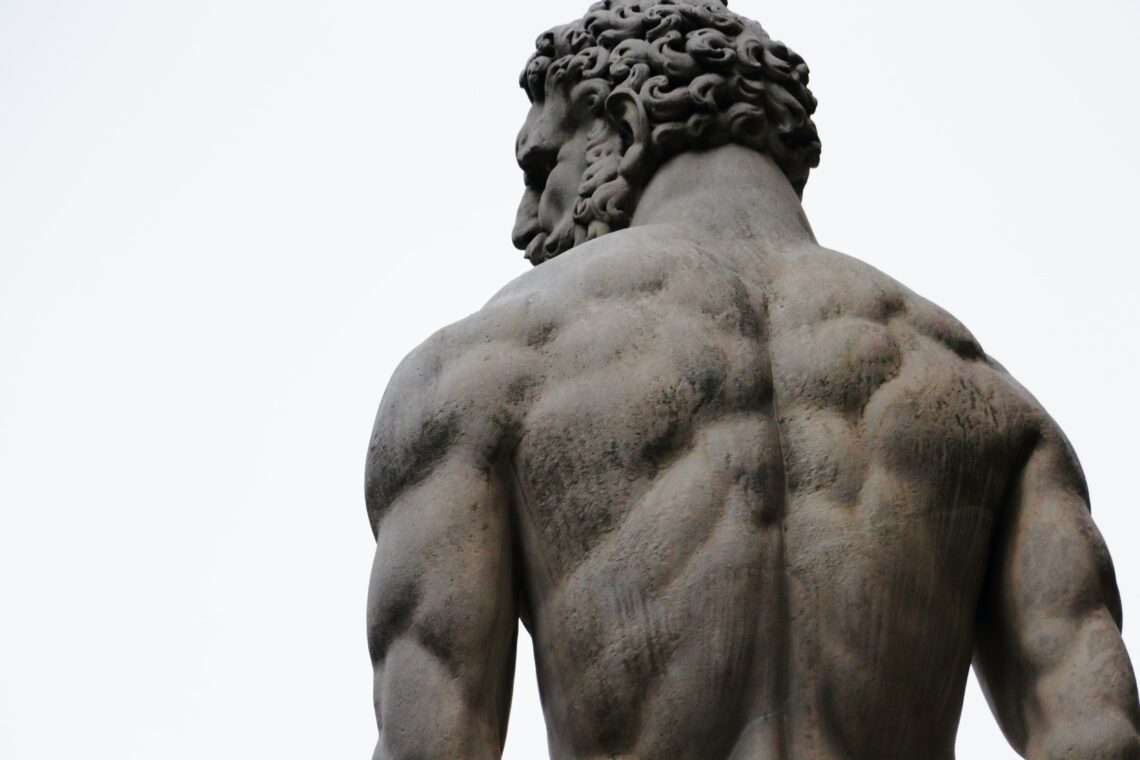
Saying “Masculinity Is Toxic” vs. “Fight Masculinity That Is Toxic”
“Toxic Behavior Versus Toxic Masculinity.” That was a title I read on a press release in my in-box. And, normally I hit “delete” on email ads. But this one grabbed my attention, because I saw in it two things contrasted that were actually the same thing—because toxic masculinity is toxic behavior. And we should oppose that. So, I read further and found the release contained information about a new book by a well-known Christian author.
“No doubt, men’s behavior can be toxic, or sinful if you want to put it another way,” the release said. I agreed. But then it went south: “Society’s answer to this dilemma has been to label masculinity as toxic and to emasculate and feminize men.”
Wait. What? Which society? Maybe a teeny, tiny minority of folks that few listen to. But who did the authors of this book think was actually labeling masculinity as toxic? Has the “world” said it’s toxic to be masculine? Or have most decried a certain macho brand of masculinity as toxic?
To support their claim about “society,” the release said this: “Justin Trudeau, the prime minister of Canada, said that he is raising his children, including his two sons, as feminists ‘to change our culture of sexism.’” As if that were a bad thing. It’s not. Because Trudeau has been careful to define what he means by the term “feminist”; by “feminist” Trudeau means anti-sexist, not anti-masculine. Yet the text I was reading suggested Trudeau was raising man-hating boys. He’s not! Are we even listening?
So, what we have here is people who claim to name the name of Christ distorting what someone says in order to provide a solution, the result of which is book sales. We must be better than this!
The release went on to add, “In their new book, [the authors] write that while this (i.e., decrying masculinity) is the “world’s” solution, it is not working” and that wrong solution is “destroying men.”
So, it’s us (Christians) vs. them (the world) on this? The world is all wrong and we’ve got it right on this? No. Because these authors have to distort and oversimplify what the “world” is saying before offering the solution.
Next, they make a statement with which I think all would agree: “While much of the behavior of many (not all) men is toxic, their masculinity is not.” Indeed, we can affirm this because the “movement against toxic masculinity” is not actually against masculinity per se. Rather, the movement is against a brand of masculinity that is toxic. Now, when masculinity gets toxic, it eschews emotion, abuses power and calls that abuse “manly.” Toxic masculinity mocks gentleness as “sissified.” And sometimes it even conflates biblical masculinity with a brand of male behavior that brandishes weapons, storms the U.S. Capitol, and claims to be following a Christian impulse. In other words it looks nothing like Jesus Christ. And that is bad indeed.
The press release makes this statement: “Men can change—and are changing—by the power of God. And that starts by dealing with our sin problem.” Yes! Agree! And it also says, “Make no mistake about it—there is a culture of sexism and toxic behavior, even in the church. Women have been experiencing hurtful behavior by men for years. If you feel a sense of injustice to women, that’s the Spirit of God rising up in you. Jesus treated women with dignity and respect. The Word of God commands it. The good news is, men, you have a choice. You do not have to be ruled by toxic behavior, which is sin.”
Yes, and amen!
Simply put, we are fighting the same thing here. Indeed, if we were to draw a Venn Diagram, Christians would have mostly overlap with what the authors assert and what “culture” is saying about what’s toxic. Thus, the conversation about toxic masculinity is not an “us vs. them” debate but rather full of common ground only with differing theological underpinnings.
“Your masculinity is not sinful; it is good. Embrace it,” they say. Right! “The strength that can be used to mistreat women is the same strength and power that can be used to protect them, stand up for them (when you see wrongdoing by other males), and cherish them.”
Well. Okay, maybe. It depends on what these authors mean by “protecting women.” Doing so can be great, but it can also patronize. A mindset that says, “I protect women” can hold women back. “Standing up for” women can be great if it means working to create a culture in which men treat women like Jesus treated them, with “dignity and respect.” But it can also silence women as men speak in their behalf. Cherishing women is great if we’re talking about husbands with their wives. Paul did exhort husbands to cherish wives (Eph. 5:29). But when speaking of men with women more generally, the more applicable actions look less intimate and more like respect.
The press release wraps up its messaging by saying the new book “challenges readers to reject the culture’s redefinition and seek biblical examples of true manhood. Fast-paced, filled with relevant, biblical stories of godly men like David and Nehemiah, and contemporary stories of godly men like George Foreman and Tim Tebow, [the book] empowers men to be who God created them to be and to impact the culture that is in desperate need of their influence.”
David did some great stuff. But David was also a man of such violence that God instead chose Solomon, a man of wisdom and peace, to build the first temple. George Foreman was a pro boxer. Tim Tebow played professional football and baseball. If we’re talking about their character, great. But about their vocations…the latter two are athletic guys—people many would label as masculine. But isn’t that part of the confusion? I mean, what do we do with role models who are less traditionally masculine but who live out the fruit of the Spirit in male bodies? Take, for example, Fred Rogers. Or…uh…Jesus. If we fail to also hold up these sorts of men as models of masculinity, what are we saying to our male artists and engineers and teachers, the guys who are five feet tall and weigh less than 150 pounds, or those who would rather read Scientific American than watch pro wrestling? What about the painters and city planners? The introverts? The administrators and burger-flippers? Not all men command the stage; some have the gift of helps. During a spaghetti dinner in the church basement, we might find godly men—males living out Christlike character (the true definition of masculine)—running the dishwasher while their brothers with the gift of leadership pick up the mic.
What the church teaches men about their masculinity affects how men view themselves and how they treat others. Such teachings affect how men view females and thus how they treat women. Toxic manhood holds up John Wayne and William Wallace as role models. And holding up this type of man as the ideal has seeped into Christian teaching. But when the apostle Paul told the Corinthians (male and female) to “act like men” followed by exhortations to love, he was talking about something far different from acting like popular athletes. Rather, he was contrasting manhood with childhood. So his point was this: Grow up. Be mature in Christ. That is the true measure of a man.
P. S. And also the measure of a woman.
Photo by Simone Pellegrini on Unsplash



